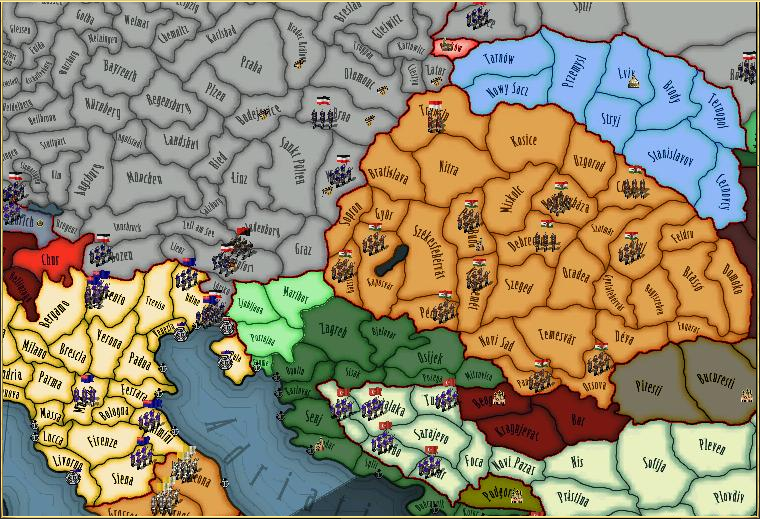To All: Will either update tomorrow or Tuesday. Not too long till exams are over, and then we can be having more regular updates! And this next update is one I have been very much looking forward to writing.
Enewald, English Patriot: There is really only one outcome in this war, it has to be so. The cost was too great to allow anything but.
Hardraade, Kampf_Machen: Hmm, I still think I am lacking in a many areas of it. I spose, I just don't have the time, in all senses, to develop the style further.
Kampf_Machen: Will cover about the Colts in the next update.
volksmarschall: I'll take your word for it
 Viden, Kampf_Machen:
Viden, Kampf_Machen: You'll get a map in the next update, but there is no point posting a map now when it'll be changing radically in a few days.
Director: Indeed, I am fearing that problem. I shall have to be very hard on myself from now on, as goes events and modding.
Gywn: Will cover about this in the next update.
Tommy4ever: He did get thousands over Germans killed... and his entry in Vienna is not as important as it may seem. The Capital, in fact as we shall see, means very little.
comagoosie: No, phyrric because the game will be too easy now...



